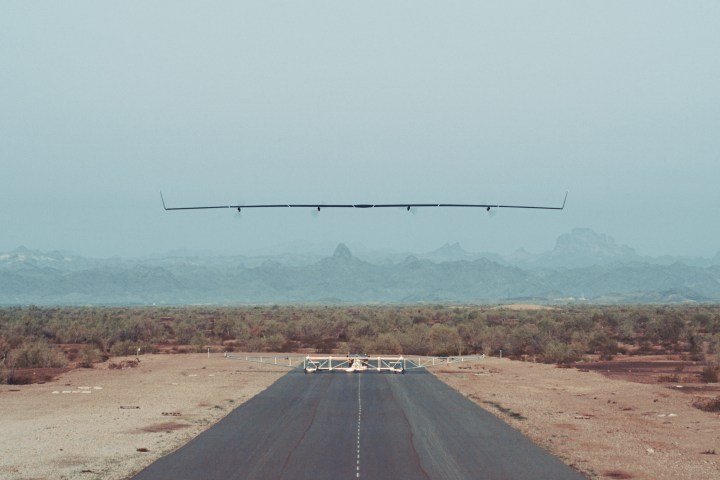
The company originally planned to fly Aquila for only a half-hour, but the test was so successful that the drone ended up flying for nearly 90 minutes during a flight in late June. The flight did remain at a low altitude though, far below the 60,000 feet that Facebook’s swarm of internet-serving drones will fly over underserved areas.
Future tests will gradually build up to that altitude, but at this point Aquila’s research team are more interested in ensuring its systems function properly, the company says. This week’s tests involved checks on aerodynamics, batteries, and control systems, as well as giving some of Aquila’s pilots some real-world flight time.
Eventually Facebook’s drones will fly for three months at a time, and be powered completely by solar. The drones will be positioned in areas where internet access is hard to come by and beam connectivity down to the surface via lasers. No timeline has been given for the launch, but it’s likely several years away.
“To reach our goal of being able to fly over a remote region and deliver connectivity for up to three months at time, we will need to break the world record for solar-powered unmanned flight, which currently stands at two weeks,” Facebook global head of engineering and infrastructure chief Jay Parikh wrote in a blog post. “This will require significant advancements in science and engineering to achieve.”
That work doesn’t also include the discussions Facebook will need to go through with governments and other partners just to have permission to fly the drones on what essentially is a full-time basis. That could be a far more difficult task than building the drone itself. Also, there might be some design issues they’ll need to consider.
According to Wired, just before landing Aquila experienced some type of “structural failure.” While Facebook officials didn’t specify what kind of failure occurred, it suggests that the design might not be ready for primetime just yet either.

